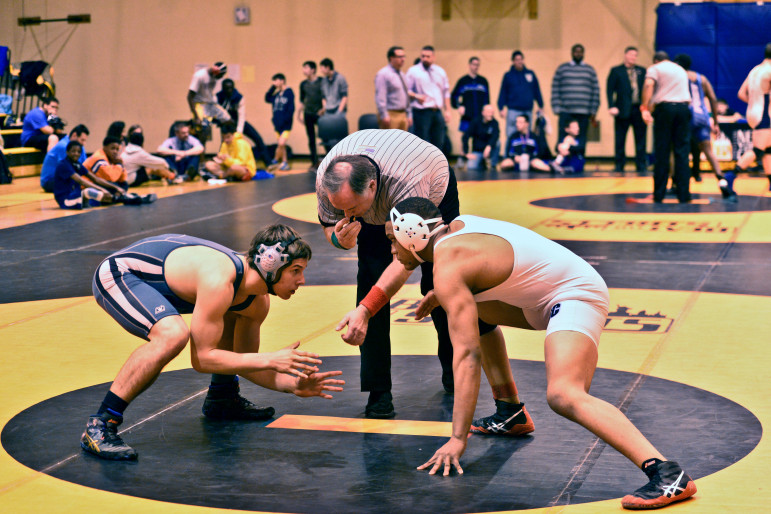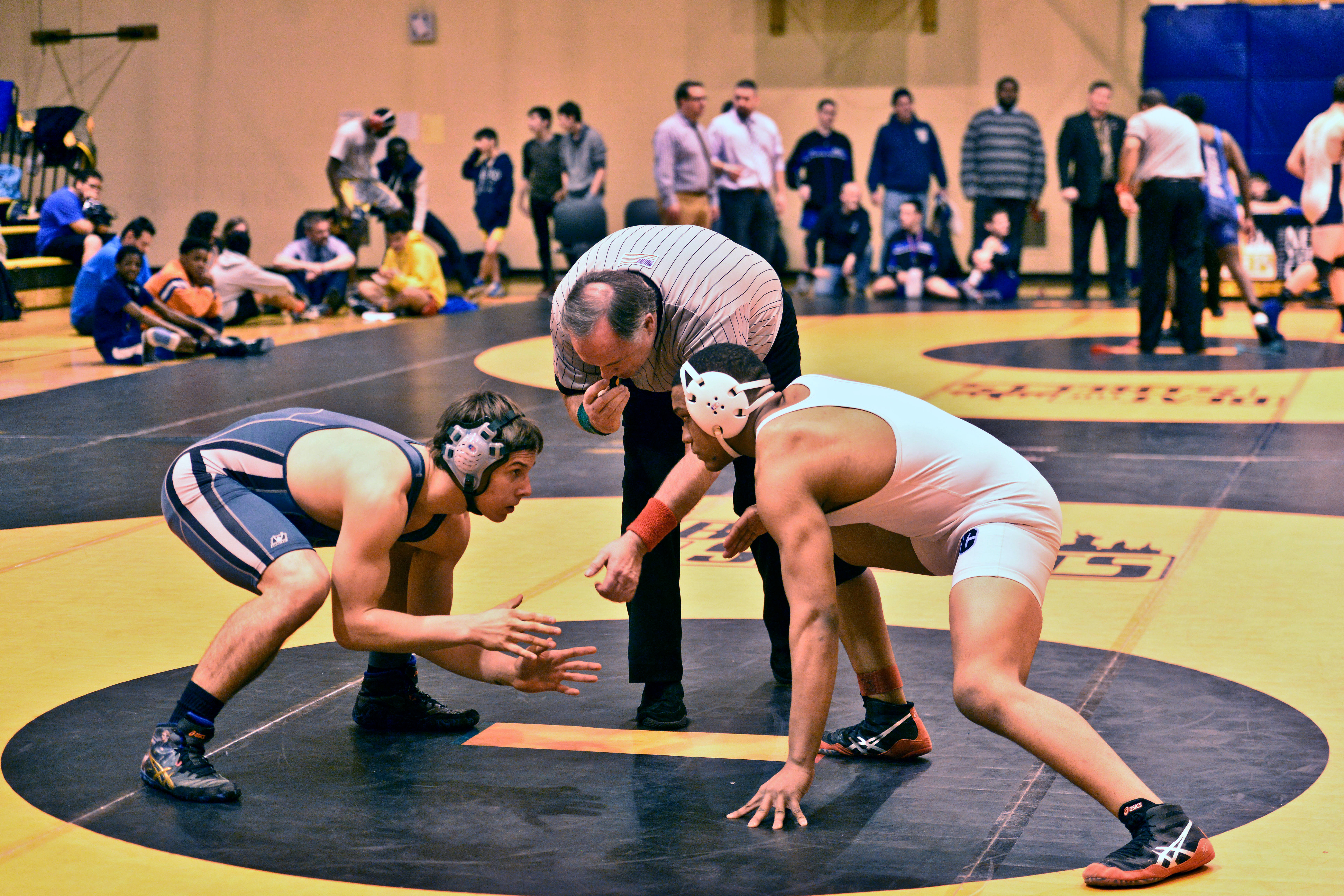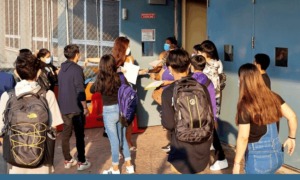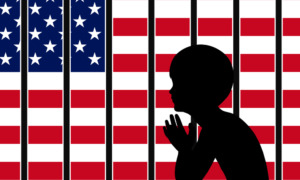
Talia Cid
Aaron Gondola, right, faces off against Dominic Ondusko for the New York City championship at 182 pounds.
NEW YORK — Going into the New York City high school wrestling championships in early February, Aaron Gondola of the Grand Street Campus Wolves felt good about his chances.
“I know I’ll win cities, I’m confident about that,” he said.
The Wolves have reason to be confident. The Brooklyn team of 25 went 8-0 in the regular season this year, beating their opponents by an average of 70 points.
They are also successful in the classroom. Wrestling helps keep the students motivated in school, said Tommy Torres, an assistant principal at Grand Street with 18 years of coaching experience.
“Myself and most of our teachers, we were thinking about wrestling like Hulk Hogan or Andre the Giant,” Torres said. “We were so wrong. It’s another way to keep 25 kids on a positive team.”
The area needs quality youth programs, said Torres, who also runs the Williamsburg Sports League, which has about 1,000 participants. Sports get students involved with positive role models and keep them active until the evening, he said.
“The other day we had a shooting at the school, unfortunately,” he said. “Kids choose the wrong gangs. They don’t choose the teams, they join the violent gangs.”
Wrestling lacks funding and community support, though. The area is unfamiliar with the sport, said Stephen Perez, the team’s coach. Athletics is one of the first things to get cut from the school’s tight budget, he said.
Wrestling is just not part of the culture in the area, said senior Elijah Vasquez, who started competing in New Jersey before moving to Brooklyn. In New Jersey, wrestling is like a lifestyle for many students, but here, most people don’t know about it, he said.
Perez calls wrestling ideal for the urban area because it doesn’t require much space or equipment and can be practiced year-round. Each of his students has to pay $165 for uniforms and basic equipment. There is a donations bin for used wrestling shoes and equipment in the practice room.
“The football team pays 700 [dollars], baseball team pays 400 or 500,” he said. “In wrestling all you really need is a mat.”
Perez was a three-time city champion at Francis Lewis High School in Queens and wrestled in college at State University of New York at Cortland. He has a thick build and the swollen-looking cauliflower ears of veteran wrestlers.
When he took over Grand Street’s program last season, almost half the team was academically ineligible to compete. He started a mandatory offseason study hall for the team. He knows the marking periods for each school and constantly checks in with his team’s teachers.
The three high schools on the Grand Street Campus have an average four-year graduation rate of 59 percent, just below the city average but far below the statewide average of 75 percent.
Vasquez said his teachers put more focus on him because of wrestling, and constantly remind him they will talk to his coach if he doesn’t do his work.
“Instead of me being home I’ll do my homework here and I’ll wrestle,” said sophomore Nicolas Hernandez. “I actually started getting 85 averages when I started on the wrestling team.”
Several former team members now compete in college. The stickers from their college teams adorn a locker in the Grand Street wrestling room. Gondola said he hopes to wrestle in college next year.
The nearby Taylor-Wythe Community Center started a sports program two years ago and has sent 18 participants to college, said the program’s coordinator, Romel Jackson.
“The kids see the end goal, which is us trying to get them to college. It’s achievable because kids in the community have done that,” Jackson said.
Gondola won his final match at the city championships 10-1. He will compete in the state championships on Friday in Albany, N.Y. His teammate, Shane Leguillow, will join him.



























